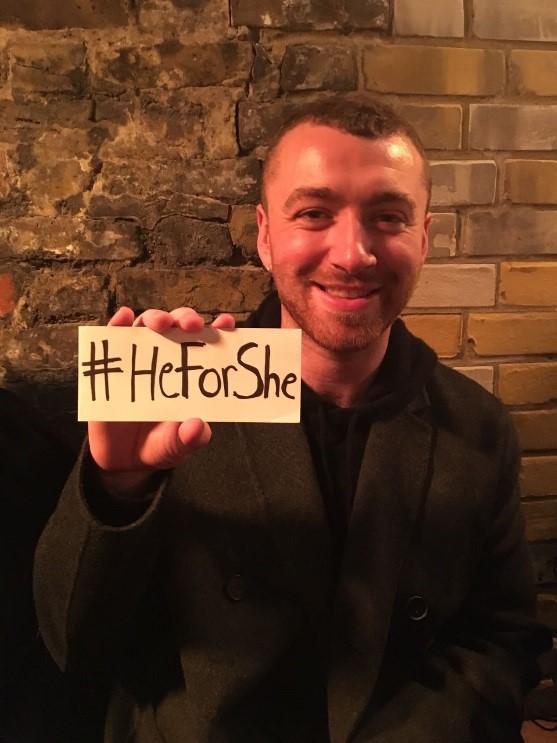Author: Alastair Marsh -
Gender inequality is a problem in many parts of our society including universities and the engineering sector. What are some simple, practical ways in which men can make a positive contribution?

It’s clear there’s continuing problems in our societies around gender. The principle of fair and equal treatment of people (where their gender is not relevant to the matter at hand) is often not fulfilled, to say the least. This state of affairs is in the vast majority due to how men view and treat women. This seems the case for me both from speaking to women I know and wider studies on these matters. Engineering and technology is not immune, as seen in several widely reported stories about employees’ unacceptable behaviour in industry last year. Problematic behaviours continue to be prevalent in engineering courses in universities too.
At the same time, I’ve also noticed that (myself included), it can be confusingfor men to know how to respond to these issues in the right way. I’ve observed this from speaking to men I know, as well as observing statements from well known people in the press. Since we’re all fallible humans, it’s worth taking a kindly approach of trying to understand where people are at before telling them how they could change. I’ve observed that the following can be points of confusion or hesitance (rightly or wrongly) for men, with regards to engaging in discussions or actions about gender equality:
- Being unsure of what the boundary is to report unacceptable behaviour
- Fear of being caught up in something that’s too ‘political’
- Not knowing what the right thing to say is
- Lacking the confidence to engage in discussions (and in particular voice a dissenting opinion) for fear of being shot down
- Uncertainty as whether there is irrefutable evidence on a given matter
- Knowing what things one should NOT say or do… but not knowing what things one SHOULD say or do.
Some of these, including the desire for irrefutable evidence and a ‘doer rather than talker’ mentality, are perhaps more prevalent in men who work in engineering.
For those who deny that gender equality is a serious matter that deserves our individual attention, and action, there is evidence for this from various studies and sources, such as sexual harassment and the gender pay gap in the UK, and a plethora of issues worldwide. For anecdotal evidence, I’d suggest you ask your female friends whether they are always treated in the same way as men – listen, and ask them for suggestions on what one can do.
For those who are aware that this is an issue and would like to contribute in a constructive way, then this is for you! Even though the majority of us are fundamentally decent people (and not the monsters who commit terrible crimes), there’s always ways in which we can be better. Here are my personal suggestions for simple, everyday and tangible ways in which to ensure you’re not treating someone unfairly because of their gender. Or simply, ‘how to be a positive man in 2018’:
- Give women in a conversation the same space to talk as you would like. Interruptors are usually annoying whoever they are, but tend to be men far more often than women
- Give women a step-up when it makes sense. E.g. if you’ve been asked to give a talk somewhere, think if there’s a woman you know who doesn’t get the publicity time she deserves who would do it better. Another positive action is to give approval for well-balanced panels at conferences and events.
- If you see unacceptable behaviour taking place, say something. Depending on the situation, at the time – for University of Bath, here is the guidance on reporting sexual harassment
- Look at women in the face whilst talking. Painfully obvious, but it’s a VERY common complaint. For those who generally struggle with this for reasons of shyness – as I once did – I generally look at the bridge of someone’s nose, and then sometimes move to the point beyond one ear when speaking. Less intense than into the eyes. For a more tongue-in-cheek guide, let The Rock help you out!
- Amplify women’s contributions if you are in a sector where they are under-represented. E.g. via Twitter, in formal meetings, conversations etc.

This is by no means everything that one could/should be doing – but it’s alow-risk and positive first step. For more, the He for She movement is a good place to start. As someone who is trying to do their best in these matters, I’d really appreciate other suggestions and comments.
These tips and sources have been heavily adapted from a thoroughly-researched and inspiring post by Kelly Witwicki on “Why & How to Make Progress on Diversity & Inclusion” on the Effective Altruism forum, which was also the inspiration for this post. And thoroughly improved with some help from my friends.
Wishing you all a happy and fair 2018,
Alastair
Responses
